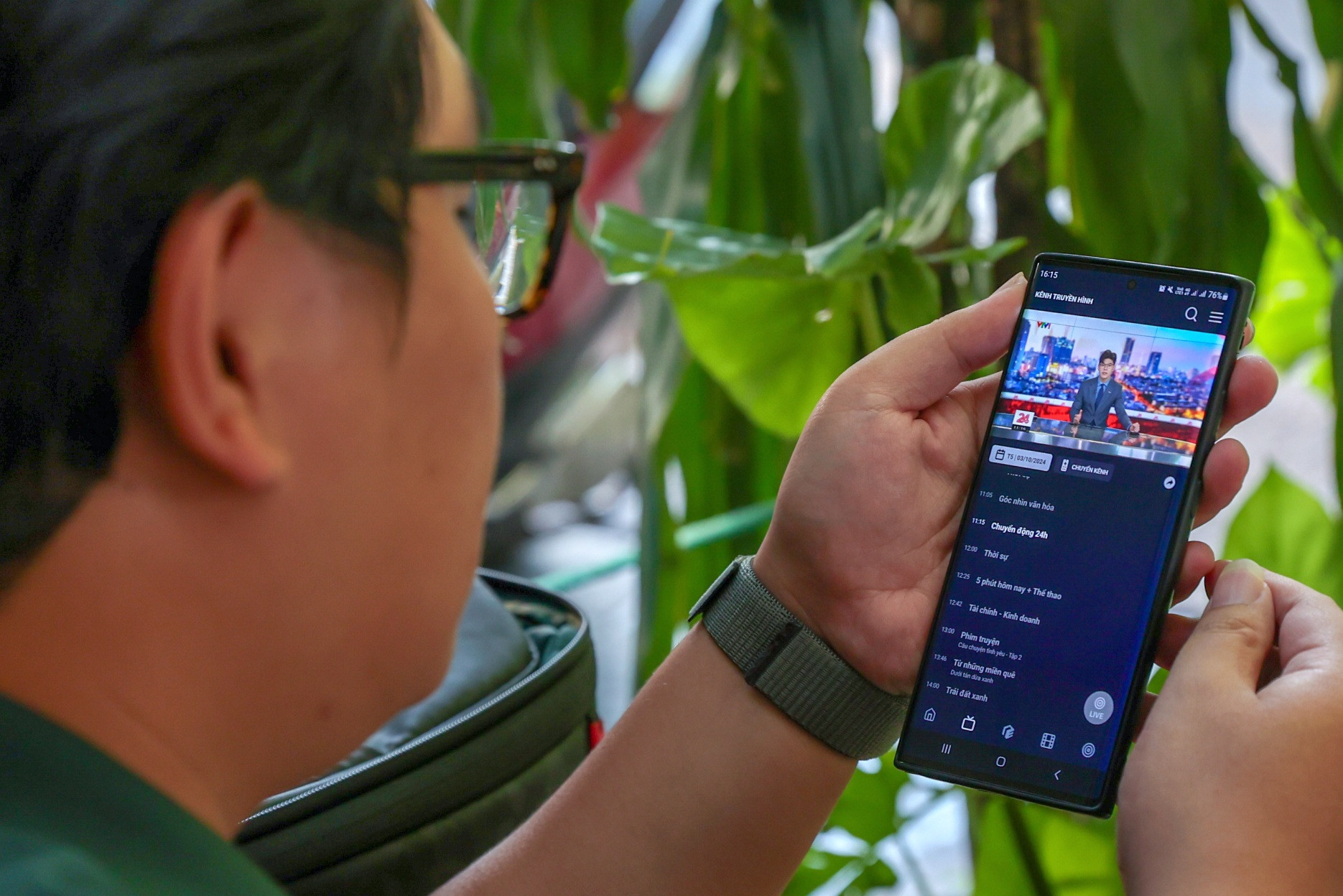
According to the Authority of Broadcasting and Electronic Information (ABEI) under the Ministry of Information and Communications (MIC), the total number of social media accounts in Vietnam has exceeded 313 million. The number of Zalo users was 76.5 million as of June 30, 2024, while the number of Facebook users were 72 million, YouTube 63 million and TikTok 67 million.
The explosion in social media not only reflects the public’s new trend of information consumption, but also signals a new era in media management - the digital technology era.
One of the most significant contemporary challenges is the spread of fake news and harmful information online. In the first nine months of 2024 alone, MIC handled 1,130 cases related to such news, indicating an urgent need to apply technology to media management.
Le Quoc Vinh, Chair and CEO of Le Group of Companies, believes that media management agencies should have technology platforms to monitor accuracy, such as fast-check system, original information protection, and copyright systems.
He stressed that the role of technology not only lies in preventing fake news but also in helping the public discern reliable information sources.
Nguyen Hoang Nhat, Deputy Editor-in-Chief of Vietnam Plus, said if newspapers can use technology to approach readers, then management bodies can also use technology to manage the media. He suggested using technological tools to assess media influence and promptly detect and correct deviant behaviors.
However, Tran Duy, a lecturer in journalism at the Institute of Posts and Telecommunications Institute of Technology (PTIT) warned that technology is a double-edged sword. While technology can help create content, it can also be misused to create and spread fake news.
"The best solution to prevent negative online phenomena is to improve digital literacy, information dissemination distribution, and develop digital culture for both journalists and the public," Duy said.
MIC, joining forces with large social media platforms, has blocked and removed thousands of pieces of content that violated Vietnamese laws this year, with a handling rate of over 90 percent.
Of these, Facebook dealt with 8,981 pieces of content, Google, 6,043 on YouTube, and TikTok, 971 violations.
To tackle these challenges, ABEI has drawn up plans for 2025, including campaigns to raise public awareness against fake and harmful news online.
The agency will enhance the use of technical measures like scanning, monitoring and AI technology applications to deal with violations and information management online.
However, experts emphasized that technology is just a supportive tool, not a panacea. Creativity and public understanding remain crucial for journalists in creating valuable content that attracts readers.
In the digital age, media management requires a new approach with technology playing a key role. Management agencies need to apply advanced technological solutions to deal with challenges such as fake news, toxic information, and the explosion of cross-border platforms.
At the same time, improving digital capacity for human resources and developing digital culture in the community are prerequisites to ensure the effectiveness of management.
Only by harmoniously combining the power of technology and human intelligence can press management keep up with the rapid pace of development of the digital age.
Integration and partnership
Vu Kiem Van, Deputy Chair of the Vietnam Digital Communication Association, said in media management, with the digital technology's strong influence, agencies are facing fake news and misinformation which can spread rapidly.
The legal framework must be adjusted to fit the digital environment, especially in protecting intellectual property and personal data.
Moreover, promoting digital transformation and supporting newsrooms to apply technology has become an urgent task. Management agencies also need to closely monitor digital platforms to ensure their content distribution responsibility.
Today, media management cannot divorce itself from digital technology, as it enhances efficiency and meets new era demands where information spreads faster and with more complexity than ever before. However, technology applications must be transparent, reasonable, and accompanied by the building of suitable legal frameworks to uphold journalism's core values: truth, fairness, and reliability.
"I believe that to develop a strong digital journalism ecosystem, Vietnam must focus on investment in technology and infrastructure, while applying AI and big data to optimize content production and distribution. We must also train journalists and editors in technological skills and content creation to keep pace with new trends,” Van said.
Trong Dat - Van Anh